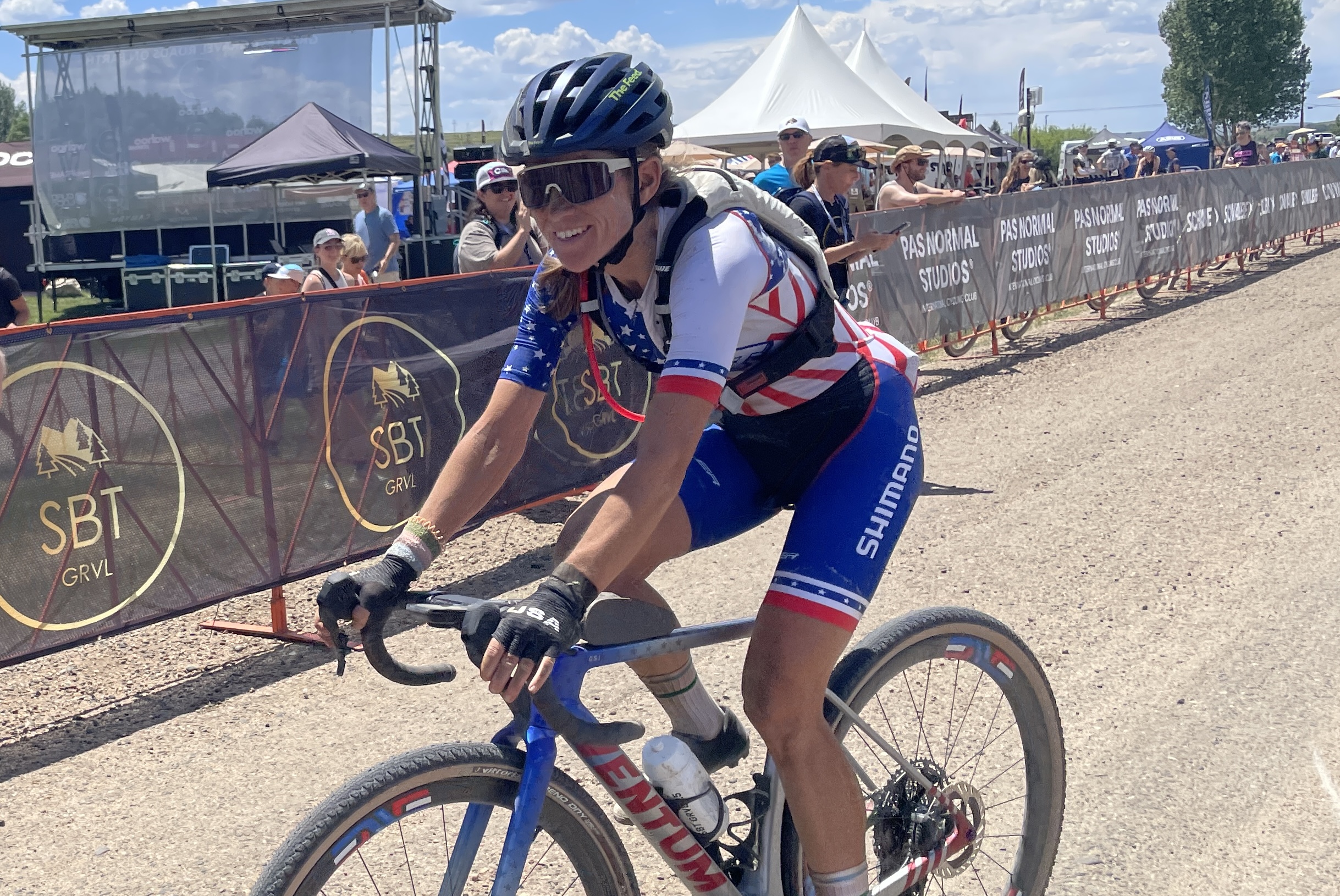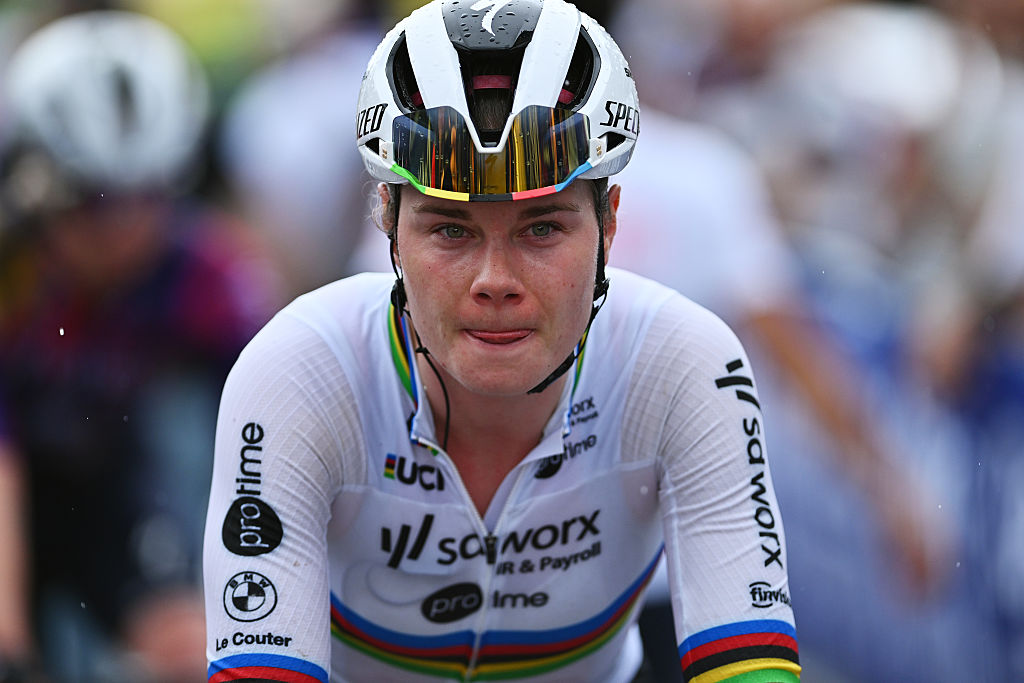Tour de Suisse Women designed for a home win - Preview
A long time trial, shortest road stage, important Giro and Tour preparation, and Reusser and Vollering are the overwhelming favourites for SD Worx
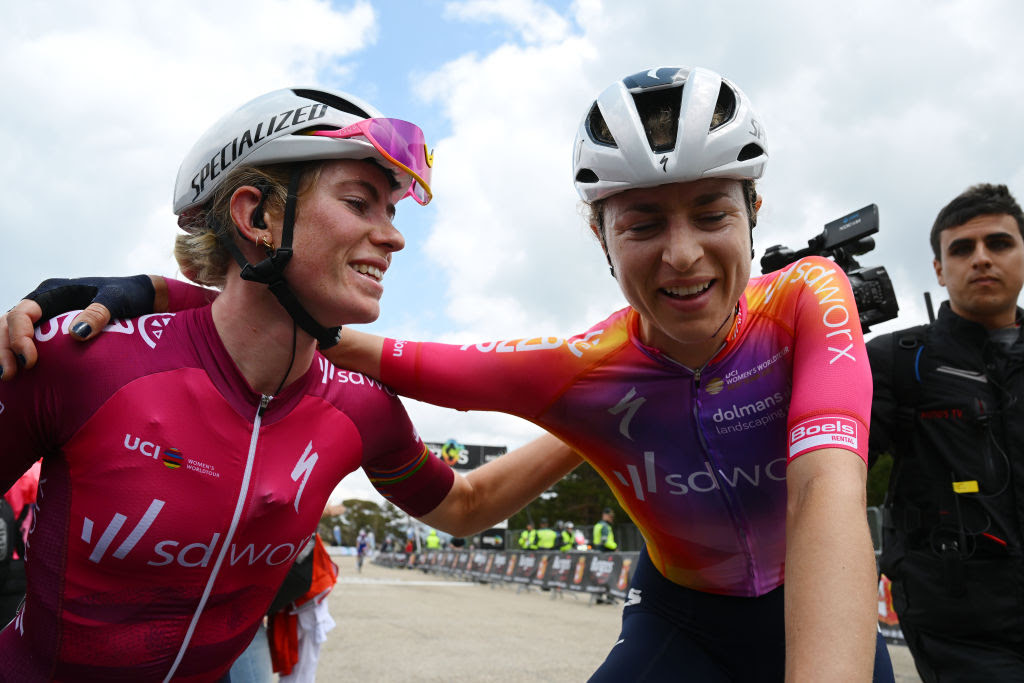
For its fourth edition, the Tour de Suisse Women has been promoted to the Women’s WorldTour but has retained the same format as the 2022 race, with three road stages and an individual time trial.
At more than 25km, the time trial is one of the longest for years and will have a huge impact on the general classification as riders build to the Giro d'Italia Donne and Tour de France Femmes avec Zwift.
Avoiding the big Alpine passes, the 2023 Tour de Suisse Women’s route features 5,000 metres in elevation gain over 327 kilometres.
Join Cyclingnews' coverage of the 2023 Tour de Suisse Women with race reports, results, photo galleries, news and race analysis.
The return of the time trial
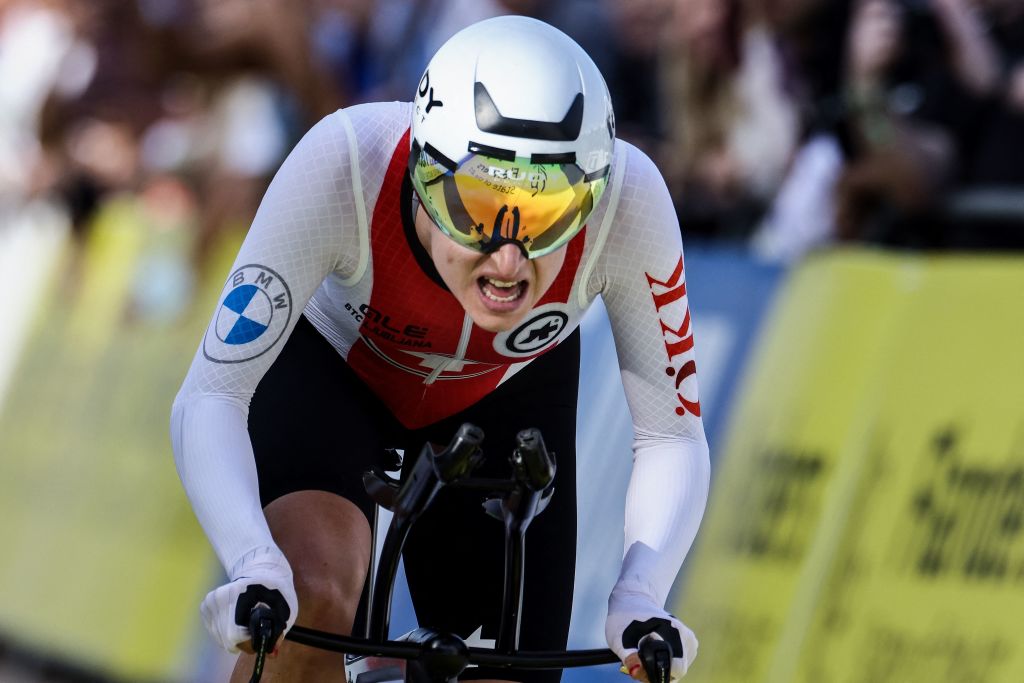
Not only is 2023 the first time the Tour de Suisse Women has been included in the WorldTour, but its individual time trial is also the first full race against the clock at the top level of racing so far this year.
While prologues and team tests are relatively common, proper individual time trials are becoming a rarity. Last year, there was only one, Audrey Cordon-Ragot winning stage 5 of the Simac Ladies Tour, her final victory for Trek-Segafredo before eventually arriving at Human Powered Health. Her teammate, Ellen van Dijk’s 2022 programme meant the Dutch woman was unable to show off her rainbow skinsuit in anything other than .1 events
But the time trial’s relative rarity is not the only thing notable about the Tour de Suisse’s race of truth. At 25.7km it is the second longest since the Women’s WorldTour was created in 2016, beaten by less than one kilometre by stage 2 of the Emakumeen Bira, won by Annemiek van Vleuten (Movistar).
Some races seem happier to host a time trial than others, but generally, organisers seem wary of them. “A time trial attracts less crowd, we know that,” said Tour de France Femmes race director Marion Rousse last year.
But even then, Rousse was contemplating a TT, and this year’s Tour will conclude with a race against the clock in Pau, meaning Sunday’s Swiss stage between St Gallen and Abtwil is an important opportunity for a confidence boost.
One of those expected to do well in both is home favourite Marlen Reusser. The SDWorx rider is among the best time trialists in the world, is on flying form, was among the first names on the start list, and the prospect of a home win may be the real reason for this week’s race of truth.
An important stop on the road to Italy and France
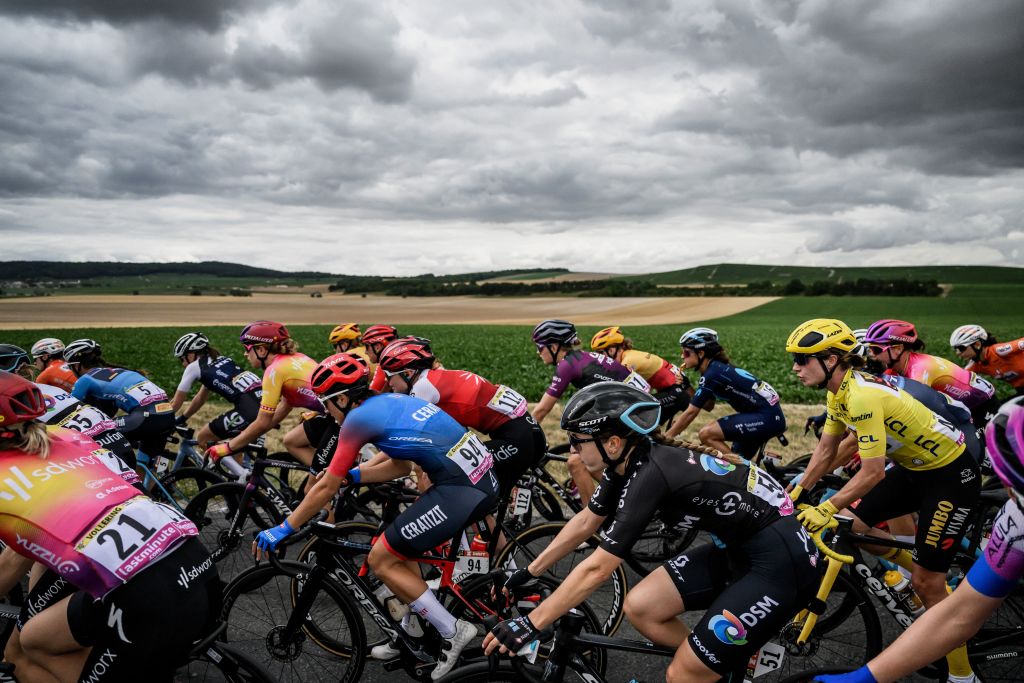
June has not been a great month for women’s racing, with cancellations reducing opportunities for in-competition preparation for the season’s two biggest races, the Giro d'Italia Donne and Tour de France Femmes.
After reducing the Women’s Tour from six to five days, in March organisers, Sweetspot announced the race’s cancellation due to funding issues. The same reason was cited when the Lotto Belgium Tour was cancelled just nine days before its slated June 14th start. Then, last weekend, after some obvious safety issues caused most of stage two of the CIC-Tour Féminin International des Pyrénées to be neutralised, the final day was cancelled.
All this has left some riders short of race days, and a strong field will line up in Weinfelden on Saturday.
After winning a stage at the Giro and finishing fourth, and top French woman at the Tour last year, Juliette Labous will lead an inexperienced DSM squad. Still only 24, she has been the French TT champion and is an accomplished climber, so will be competitive every day.
Lizzie Deignan returns after winning the GC 2021 and will hope to continue her return from maternity leave with more Swiss success for Trek-Segafredo. However, she has admitted a dislike of time trials, so while the other stages suit her, Elisa Longo Borghini may prove the team’s best GC option.
Elise Chabbey (Canyon-SRAM), who out-sprinted Deignan to a stage win in 2021, will be flying on home roads, and Alex Manley should be flying for Jayco-Alula. However, it’s hard to see past SD Worx to bag another GC win.
Can SD Worx continue their dominance?
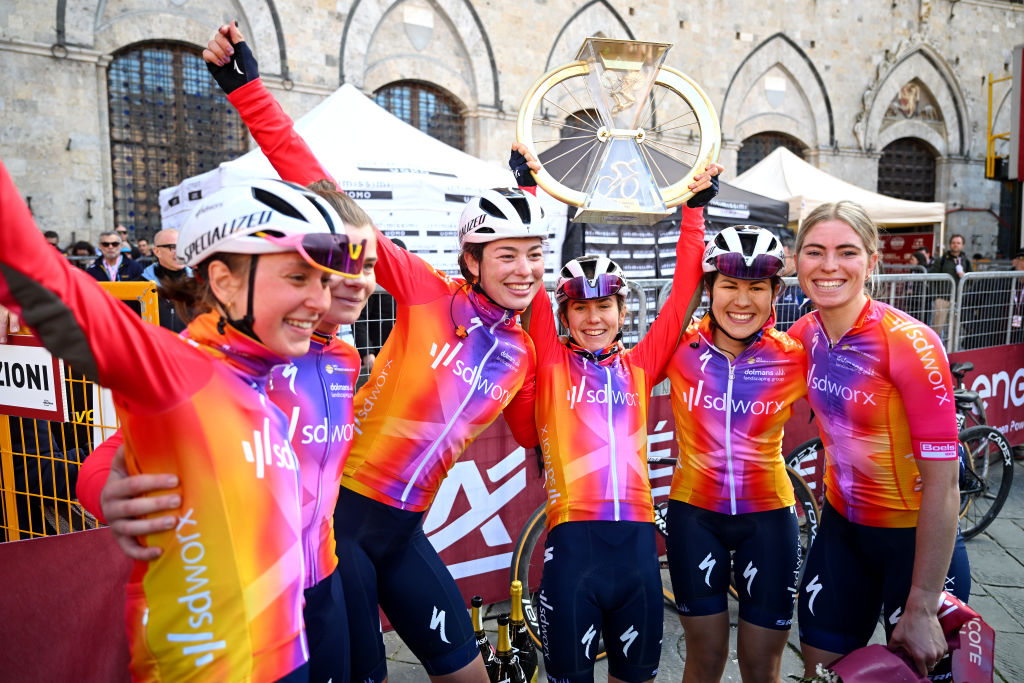
Had Demi Vollering not made her controversial nature stop on stage 6 of La Vuelta Femenina, SD Worx would have won every World Tour race they started since Paris-Roubaix. As it is, they’ve since won 18 races in a row, to go along with a total of 33 wins this year.
As it is, Vollering followed her Ardennes triple crown with two stage wins and second overall at the Vuelta, but the team followed that with victory in every race they have started since. They include clean sweeps at both Itzulia Women and Vuelta Burgos.
Then, while the Dutch squad were in Germany winning every stage and filling the top three on GC at the six-day International Lotto Thüringen Ladies Tour, the rest of the WorldTour peloton took and deep breath and produced an exciting Ford Ride London Classique.
But now SD Worx are back racing in the Women’s WorldTour and starts on Saturday with the two overwhelming favourites in Vollering and home rider Reusser who have a strong team in support.
The team have been winning big since 2014, when Lizzie Deignan won the first of two consecutive World Cup titles. Since 2016 they have topped both World and Women’s World Tour ranking in all but one year.
Sports teams exist to compete, and their ability to get it right with such unerring regularity should be applauded. They recruit well, and their success helps investment which in turn aids the recruitment of headline names.
However, such dominance is not good for the sport. For it to be entertaining, sport must have some jeopardy. That’s why Vollering’s stage win on the final day of the Vuelta was so entertaining. Let’s hope that tension is repeated this week.
No mountain top finishes but exciting finals are on the cards?
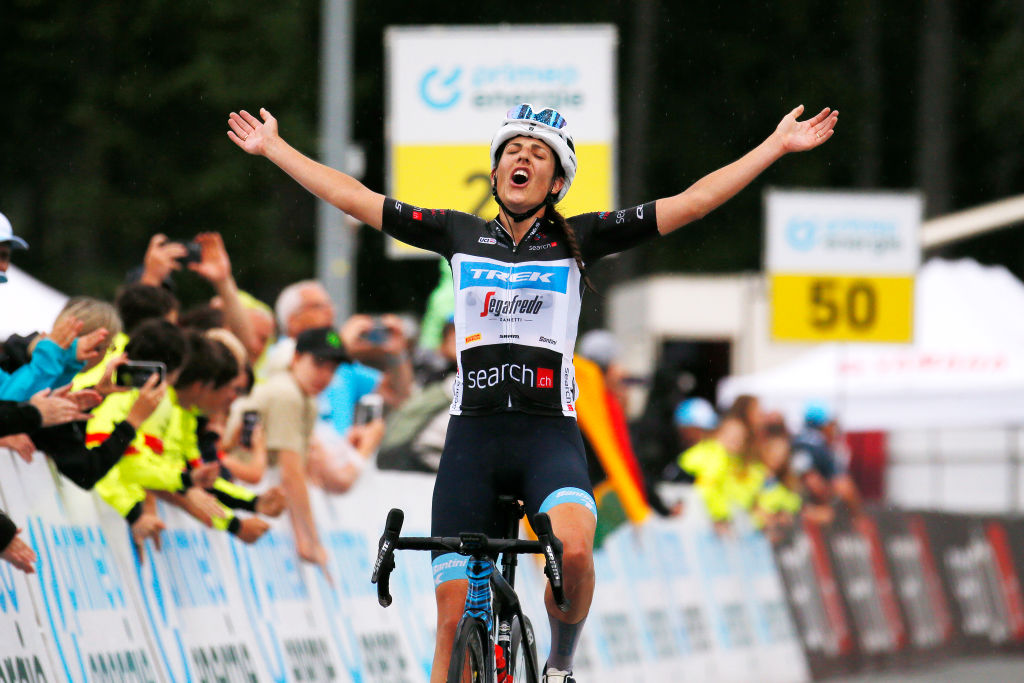
One of those dramatic moments concluded last year’s Tour de Suisse, Lucinda Brand (Trek-Segafredo) taking the final stage and overall victory after Kristen Faulkner (BikeExchange-Jayco) crashed on a rain-sodden final bend, and this year’s parcours offer opportunities for similar excitement.
Even the 25.7km time trial has over 400m of climbing, and while none of the three road stages include a mountain top finish, all include a significant amount of climbing and opportunity for dynamic racing.
The opening day has the unenviable honour of being the shortest road race since the creation of the Women’s WorldTour in 2016. It might only be 56km, but it’s not straightforward, comprising three laps of a hilly circuit around Weinfelden, close to Lake Constance in Switzerland’s far north-east. Three ascents of Burgstrasse and its 6.4% gradients might sap some legs, but it peaks 15km from the line and is unlikely to prevent a bunch sprint.
Whatever the time gaps following the ITT, the final two stages are both likely to produce combative racing, with GC hopefuls trying to overhaul whoever was best against the clock.
Stage 3’s profile includes the ominous presence of the Sitzberg climb, but it comes little more than halfway through the 124.1km stage between St Gallen and Ebnat-Kappel, so expect the action to come on Rapperswilstrasse, 10.6km out.
With 1,915m of ascent, the final stage is the toughest. Starting and finishing in Ebnat-Kappel, the 100.8km stage closes three ascents of Schorüti during two-and-a-half 16.4km loops. It’s only 1,700m but with an average gradient over 7% and coming 11km from the line, it’s sure to see action.
On the Women's WorldTour
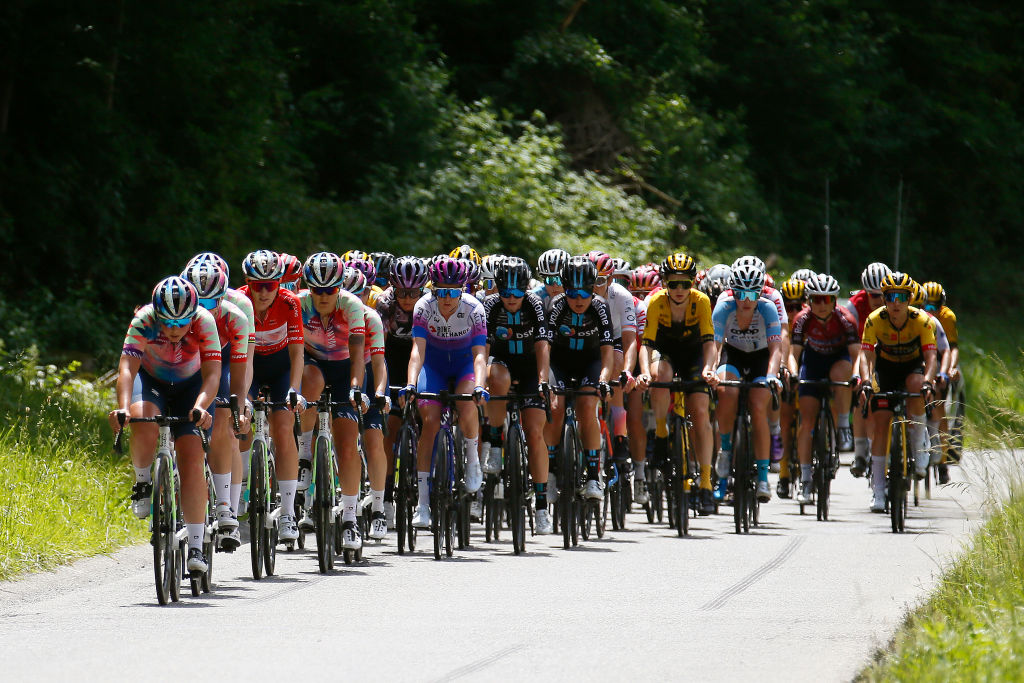
Despite being only the fourth edition, the Tour de Suisse Women has a long history and was one of the first races to add a women’s event to its men’s race.
The eyes of the world were on New York on September 11th, 2001, when the women’s race first rolled. That four-stage race was won by Australian Kimberley Baldwin, and the recently retired Trek-Segafredo rider Trixi Worrack won the final stage.
Fast forward 20 years for the second edition when Worrack helped teammate Lizzie Deignan to success in the two-stage event based entirely in the town of Frauenfeld.
For 2022, Trek-Segafredo were again winners, Lucinda Brand taking victory at the expanded four-day race, which had moved up the race hierarchy to the ProSeries. Now a Women’s World Tour event, the race follows the Tour de France model, overlapping, not running concurrently with the men’s race, thus allowing more exposure for the women’s peloton.
That men’s races see value in jumping on the women’s cycling bandwagon, bringing their organisational experience and excellent television coverage, is certainly a boon to the sport, but, despite cancellations, the calendar is extremely cramped. Had the Women’s Tour not been cancelled, there would have been a stage race every week except one since the start of May.
This has caused issues for some squads. Bearing in mind most WorldTeams have only 15 or 16 riders, it’s no surprise only 10 of the 15 WorldTeams are among the 18 squads competing.
Having attended every WorldTour race so far this season, FDJ-SUEZ are the most surprising absentees, opting to miss the race due to a race schedule issue with the national championships.
The latest race content, interviews, features, reviews and expert buying guides, direct to your inbox!
Latest on Cyclingnews
-
Lauren Stephens fully committed to Aegis Foundation Cycling women's team as it heads toward 2026 rebrand as Next Step Racing
'I've always wanted to start a team' says two-time US gravel national champion who targets first-time appearance at Leadville Trail 100 MTB in August -
Amazon Prime Day Bike Deals Live: 33% off Garmin computers, Electric pumps and Tacx smart trainers
Deals on Canyon electric bikes, Adidas shoes, AirPods and more. Day three of Amazon Prime Day is here, and the sale is heating up -
Airpods Pro 2 vs Pixel Buds Pro 2: Battle of the Amazon Prime Day deals
With both options on offer for Amazon Prime Day, which should you part with your money for? -
Back pain forces Lotte Kopecky to abandon Giro d'Italia
'As a precaution ahead of the Tour de France Femmes, she is leaving the Giro d'Italia Women to take three to four days of complete rest' confirms SD Worx-Protime
